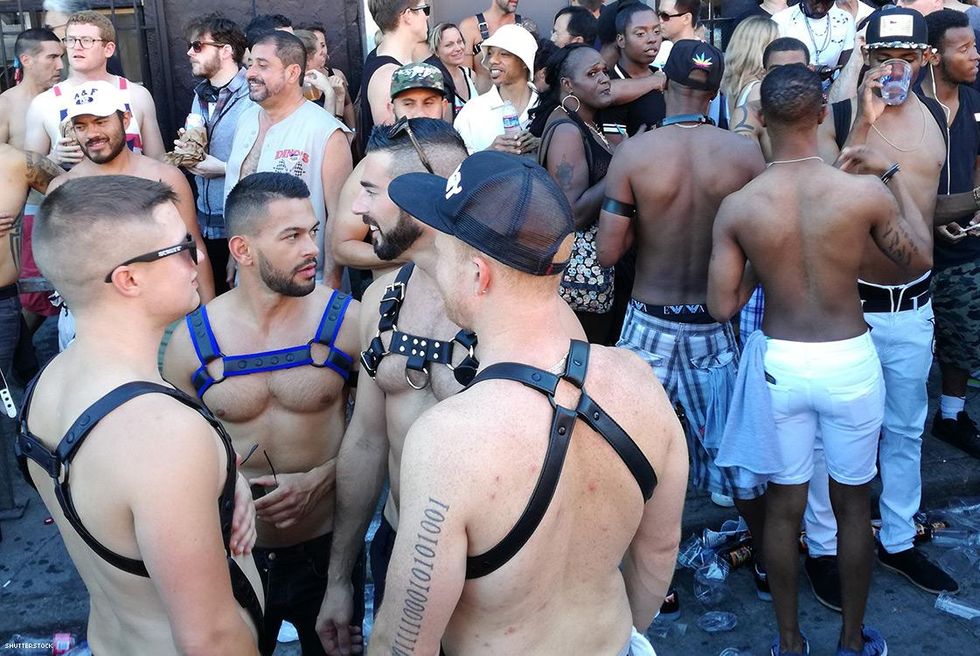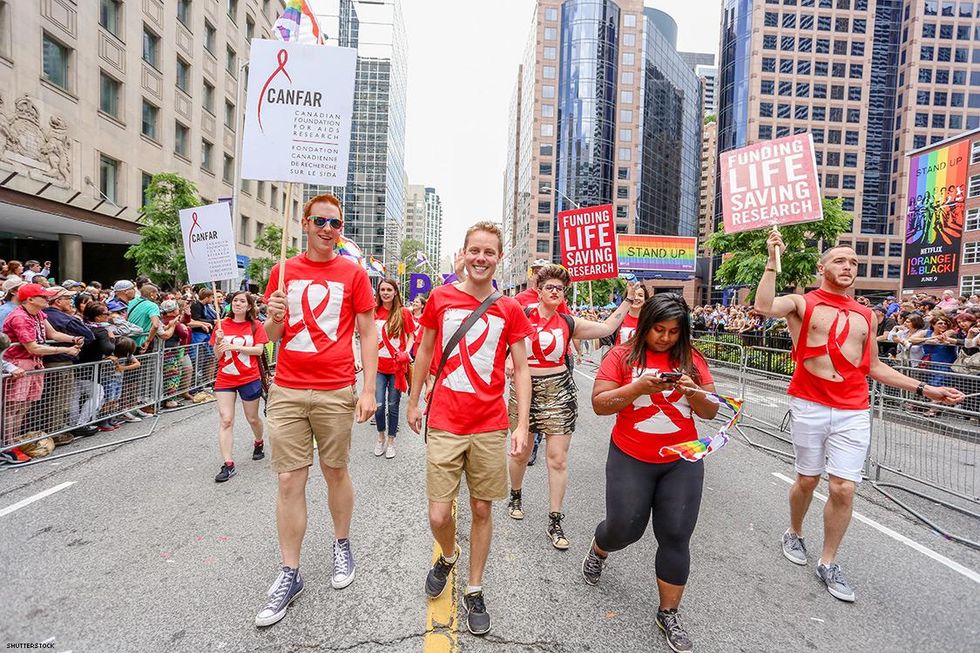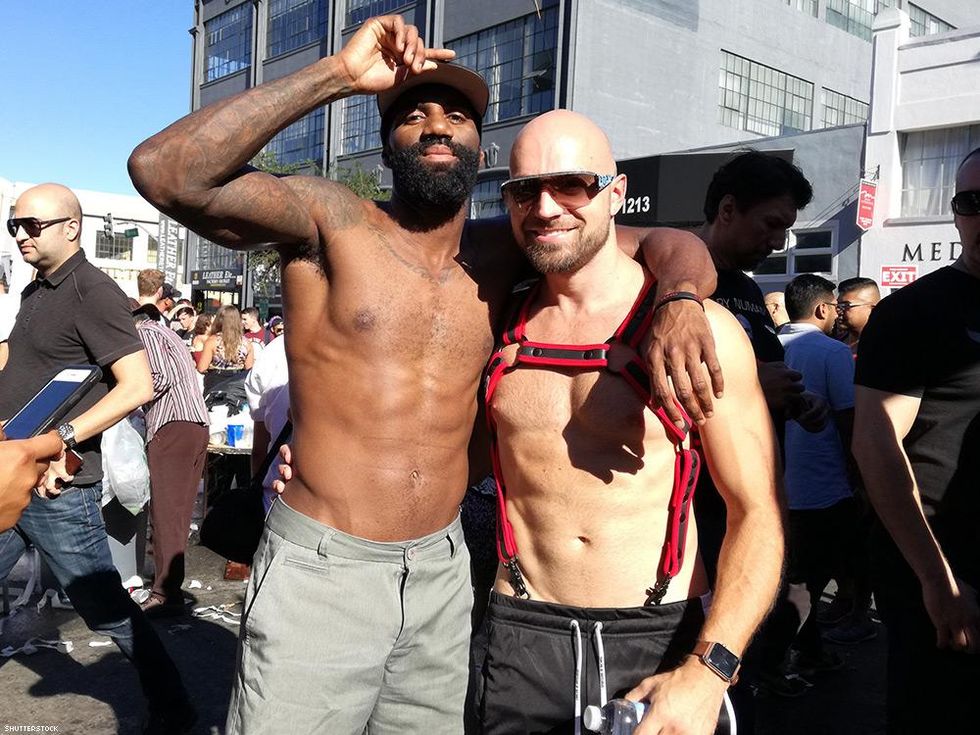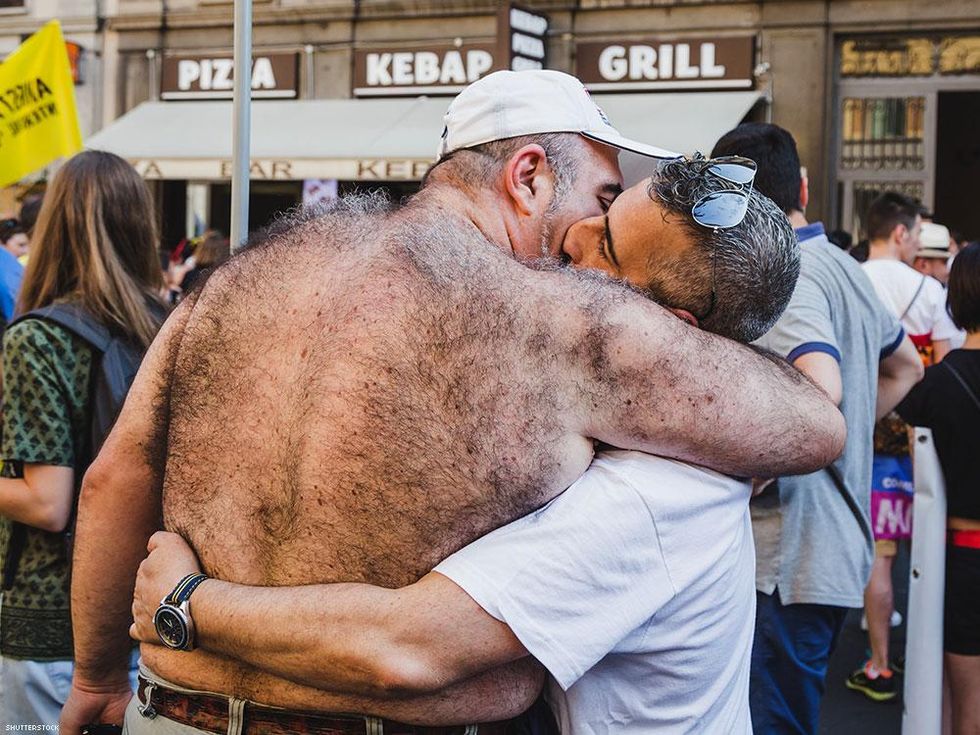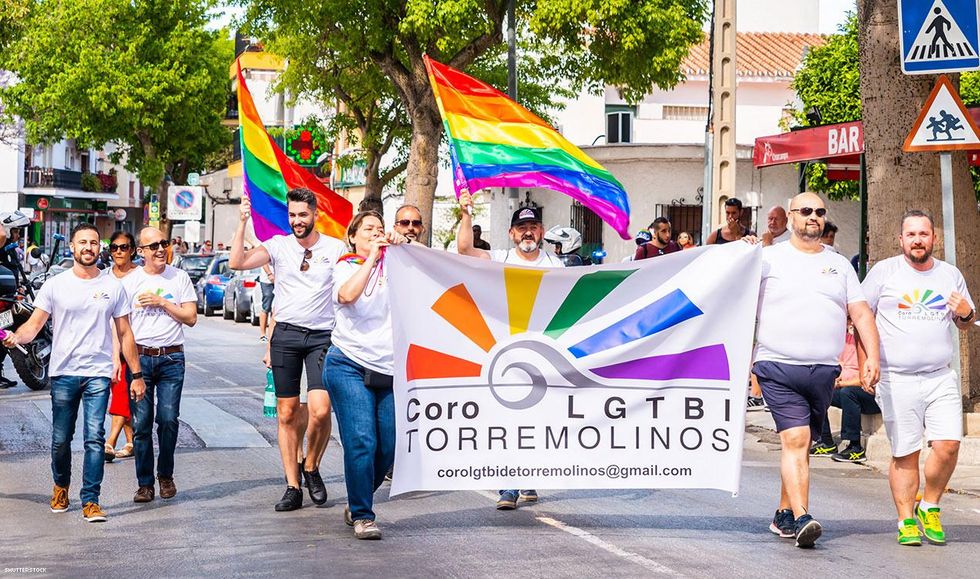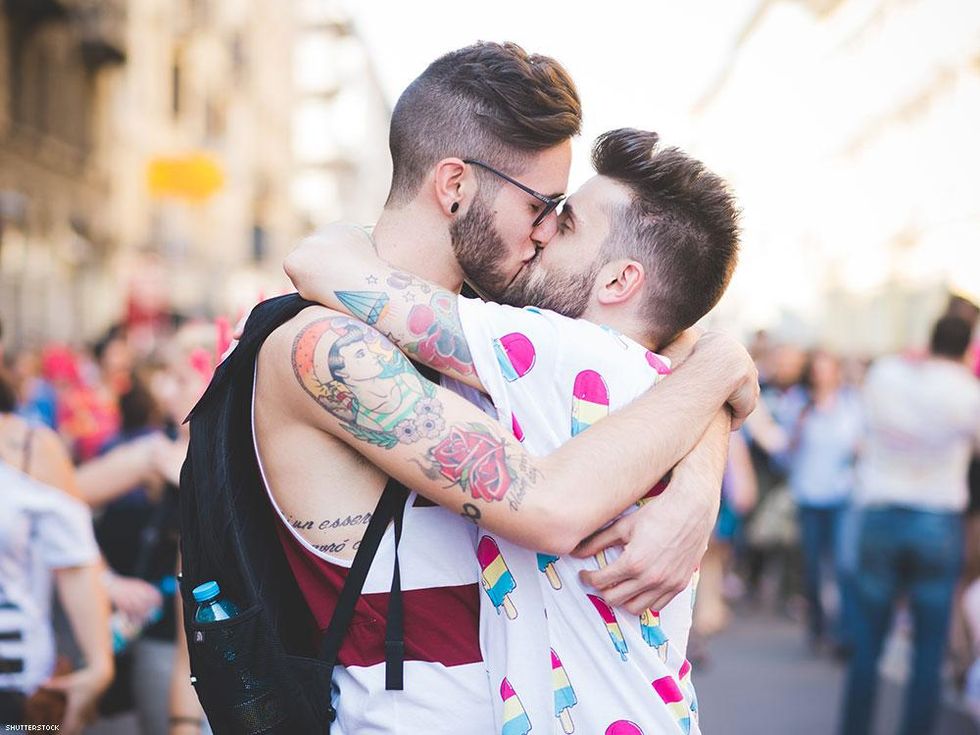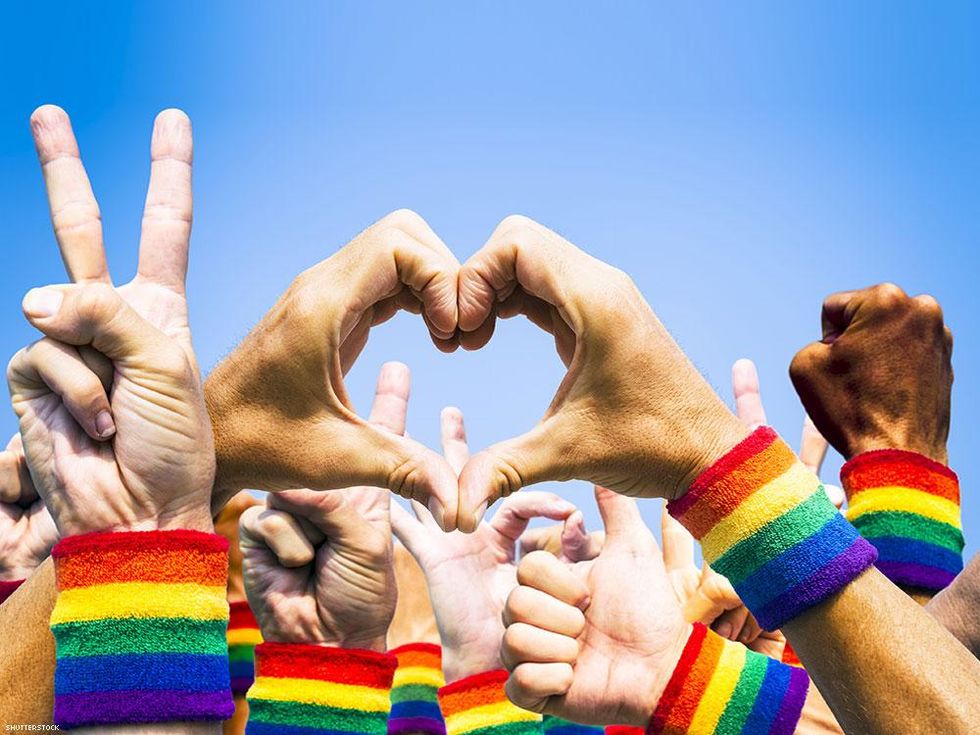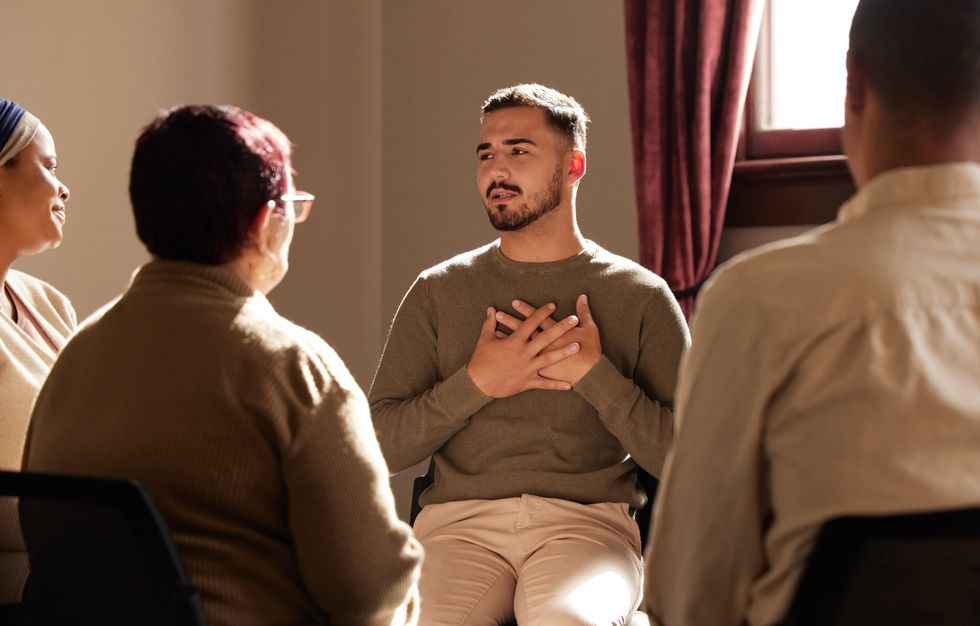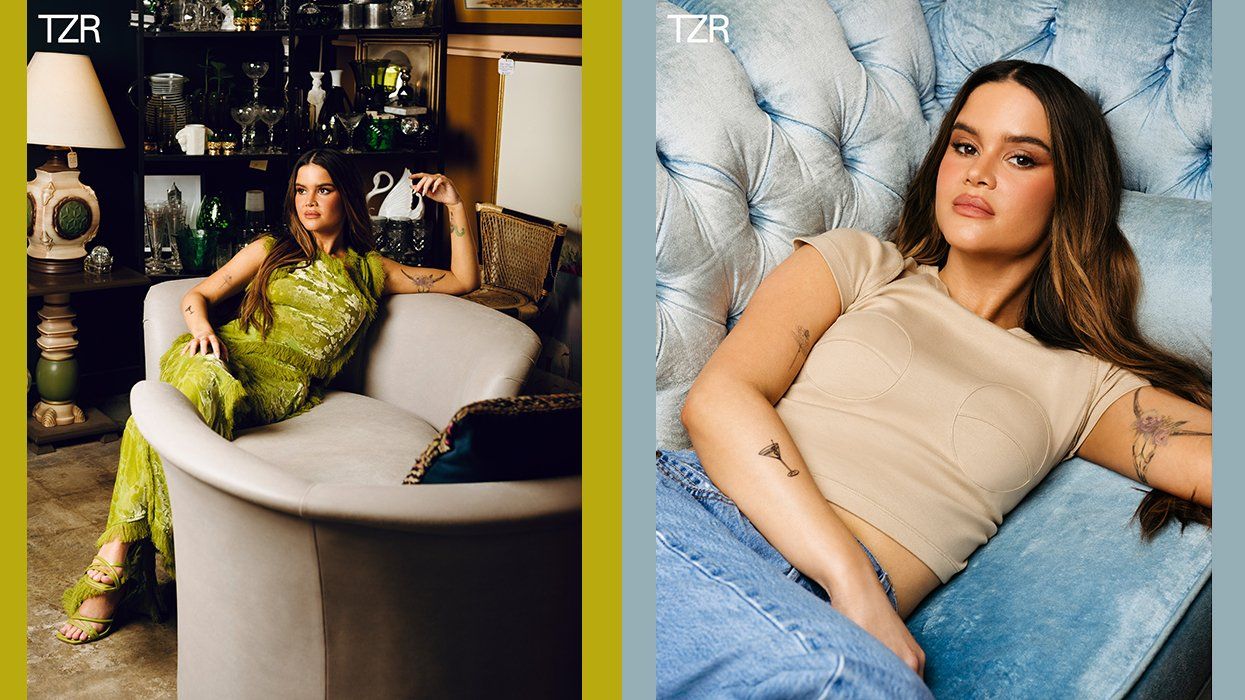It's past time we leave these types of shaming in the rearview!

Shutterstock
Despite facing our own forms of shaming and intolerance, unfortunately, the LGBTQ+ community is not devoid of homophobia, sexism, misogyny, transphobia, and intolerance, too. But, gays, girlies, and theys, we can do better! And here's where to start.
1. HIV or STI shaming

Joking that a person has an STD or is HIV-positive is not OK. Attributing a person’s sudden weight loss to HIV as a joke or out of skepticism is not okay. HIV is still an epidemic within the LGBTQ+ community, and we should be working to end the stigma associated with STIs, not perpetuating it.
2. Kink Shaming
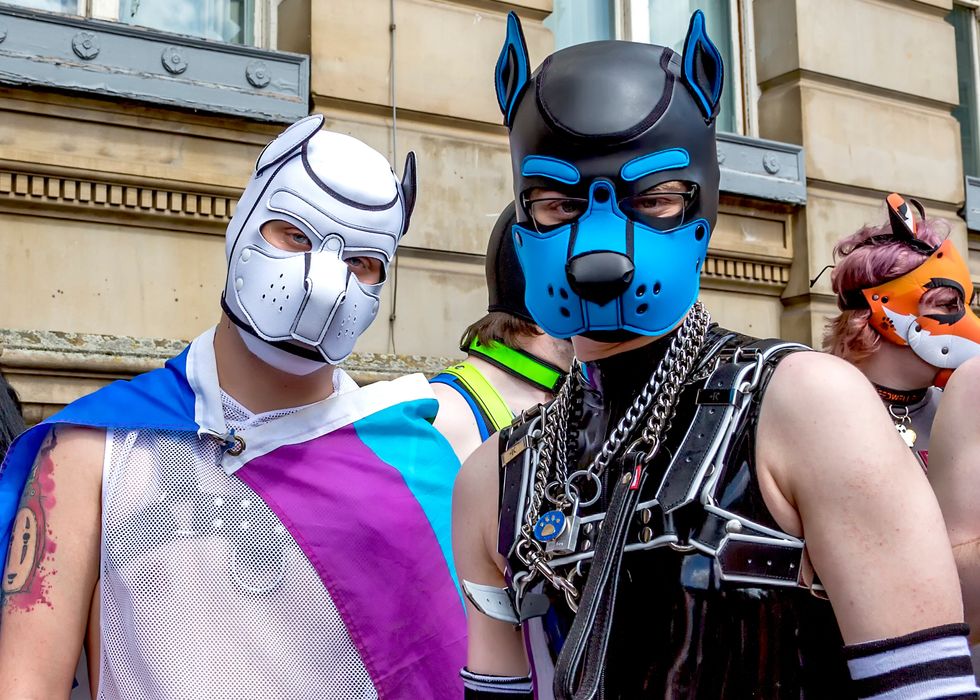
Shutterstock
Look, we all have our various interests in the bedroom. Sometimes they align with other people’s interests, and sometimes they don’t. This type of shaming usually refers to the act of shaming people for their sexual preferences and fetishes, and a lot of it comes from either social norms or personal judgments.
3. Victim Shaming
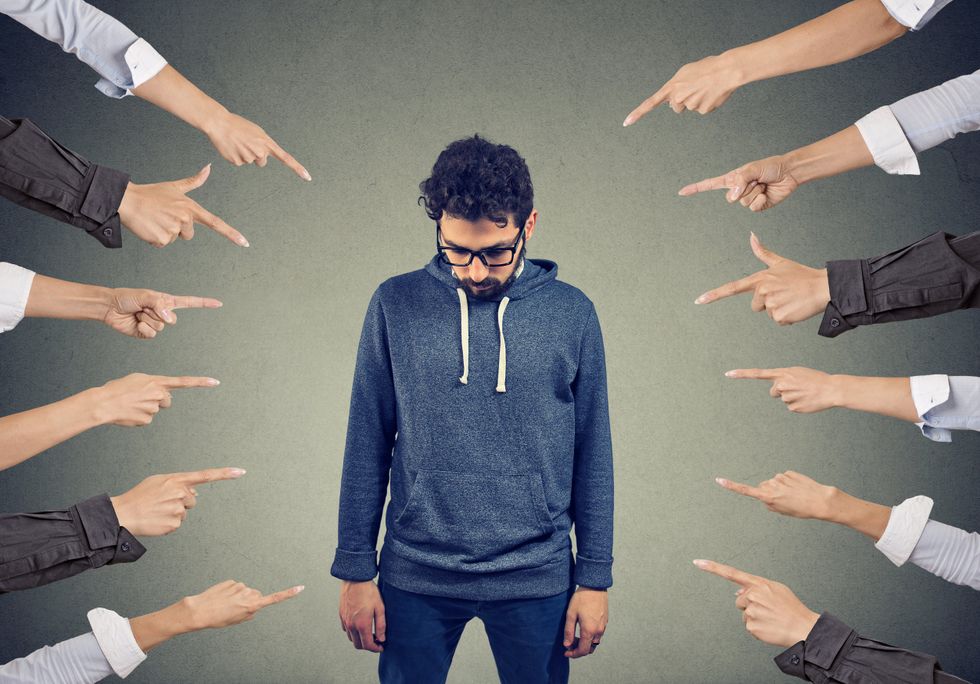
Shutterstock
In a lot of ways, this has gotten better since we went through the #MeToo movement, but in a lot of other ways, we have so far to go. We need to focus a little more on holding the perpetrators accountable and a little less on blaming or criticizing the victims for what they’ve gone through.
4. Social media shaming

Sander van der Werf/Shutterstock
Goodness, people get brave in the comments when they’re behind a screen, don’t they? Social media shaming is literally out of control. People create troll accounts just to harass individuals and many a public figure end up taking a break from their platforms just to chill.
5. Cultural or religious shaming
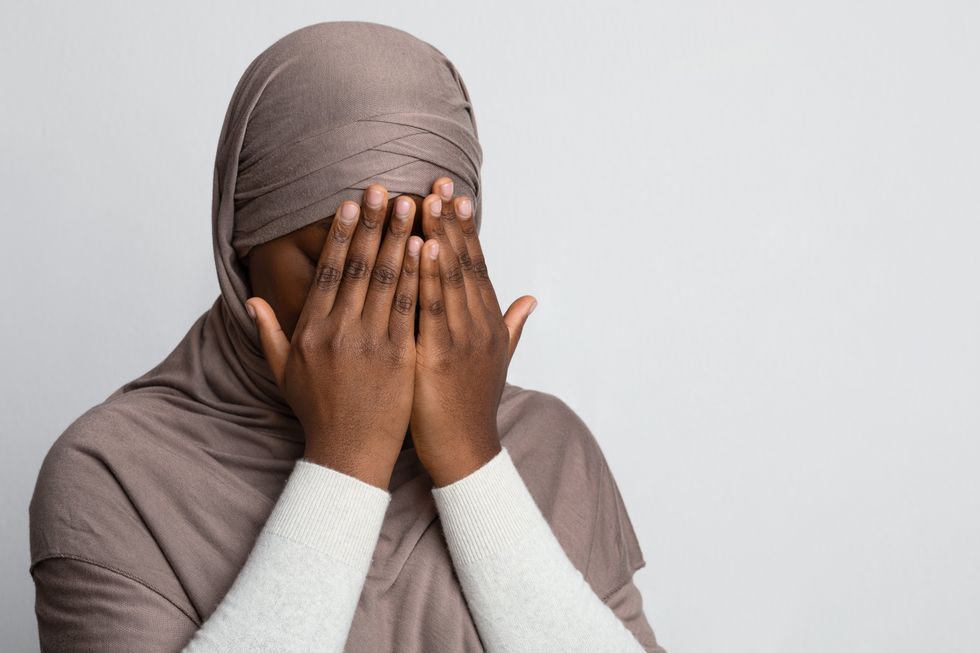
Shutterstock
Some Christians do make this one really difficult, especially the ones who tout to “love one another” and act like maniacal imbeciles. However, outside of those Christians, there’s a lot of other shaming around cultural and religious beliefs, especially those we don’t understand. All I’m saying is you get a lot further with honey than you do with vinegar.
6. Fat shaming

It's 2017, and there is still nothing funny, clever, or unique about disparaging others because of their size, shape, or weight. With summer always just around the corner, it seems that “bikini body” jokes are bound to come back in style. Don't engage in this, and in case you had any doubt, let us remind you: all bodies are beautiful, worthy, and valid. Period.
7. Femme shaming
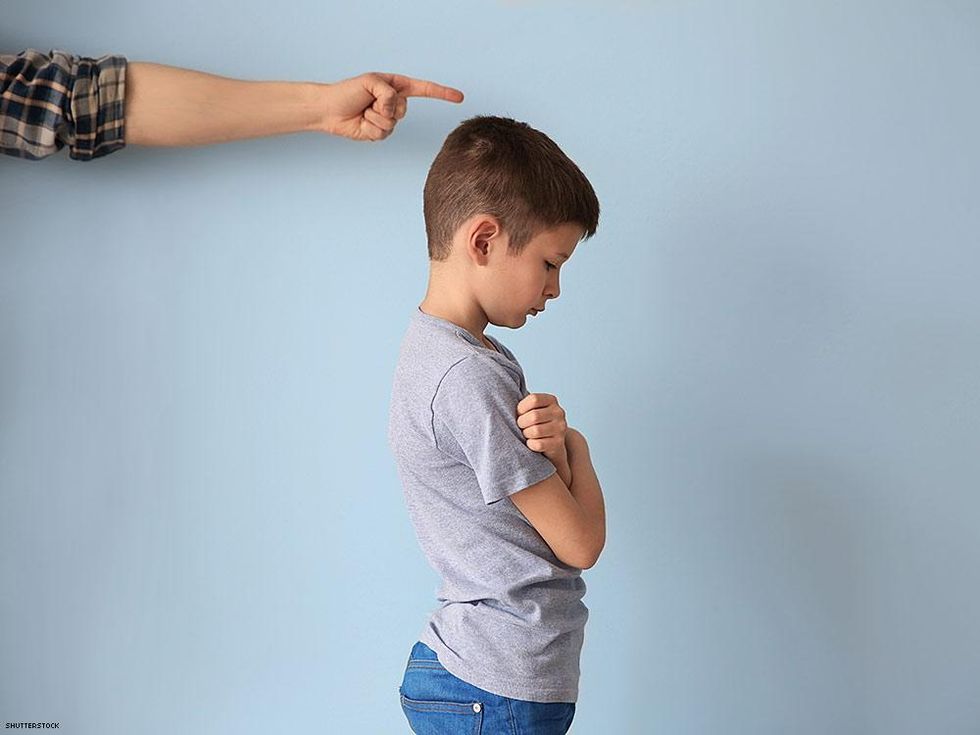
Often, members of the LGBTQ+ community takes cues from heteronormative ideas and behavior. This includes toxic concepts about masculinity, which can easily lead to femme shaming. You may think it's funny to disparage someone for looking, sounding, or acting femme, but really, what's wrong with being femme? Jokes like this are often a way of asserting authority or power, which is pretty horrifying when you consider femmes experience higher rates of violence.
8. Slut shaming
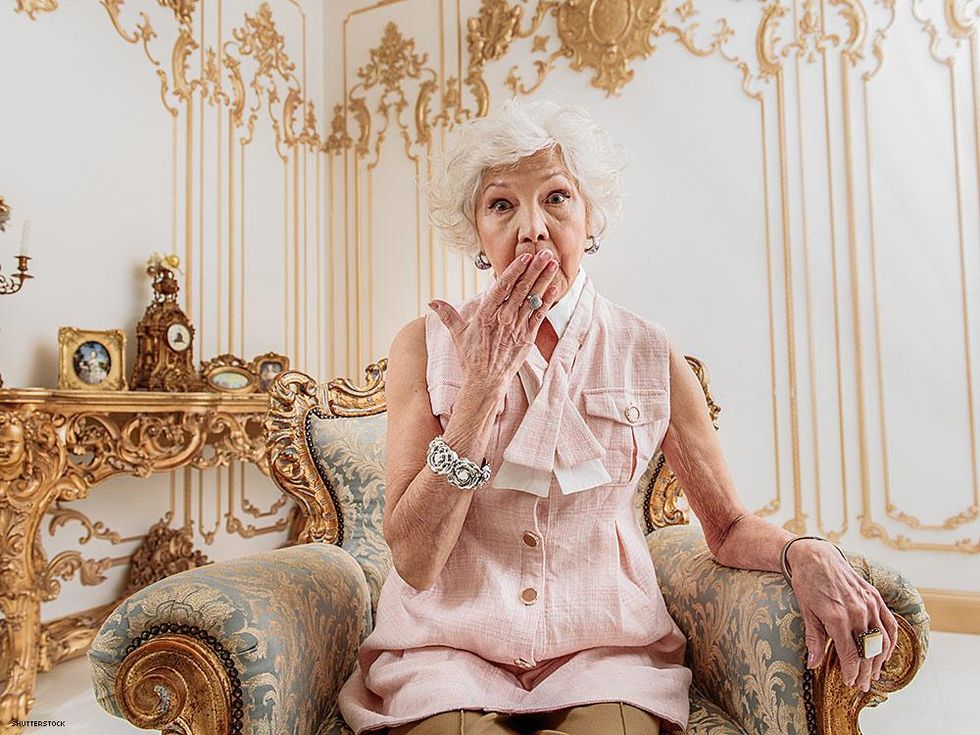
No one likes a prude. Think before you object to sex positivity or offer an unwanted opinion about other people's sex lives. Shaming those who are sexually active is not only problematic, it's often a projection of shame we've recieved around sex. Remember: it isn’t our job to yuck someone’s yum.
9. Bottom shaming
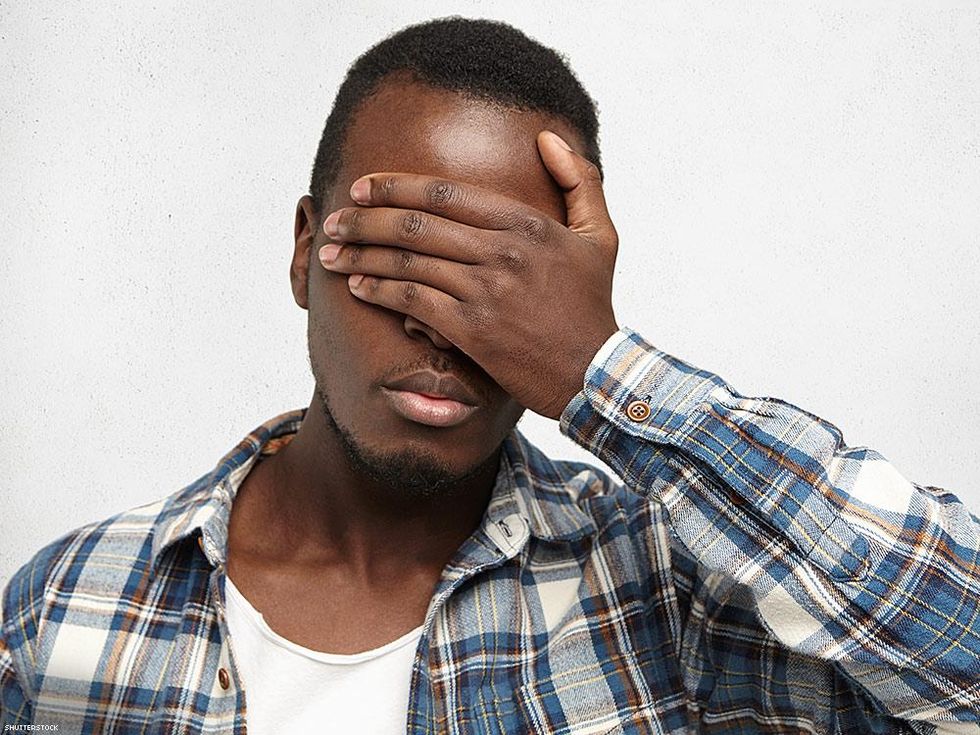
In the land of sexual positions, bottoms are too often the butt of the joke (no pun intended). People have a tendency to characterize submissive and inferior to tops, who are often characterized as more dominant. We shouldn't assume a person is submissive because of their preferred sexual position, and we definitely shouldn't fail to see the underlying sexism in bottom shaming.
10. Transphobia
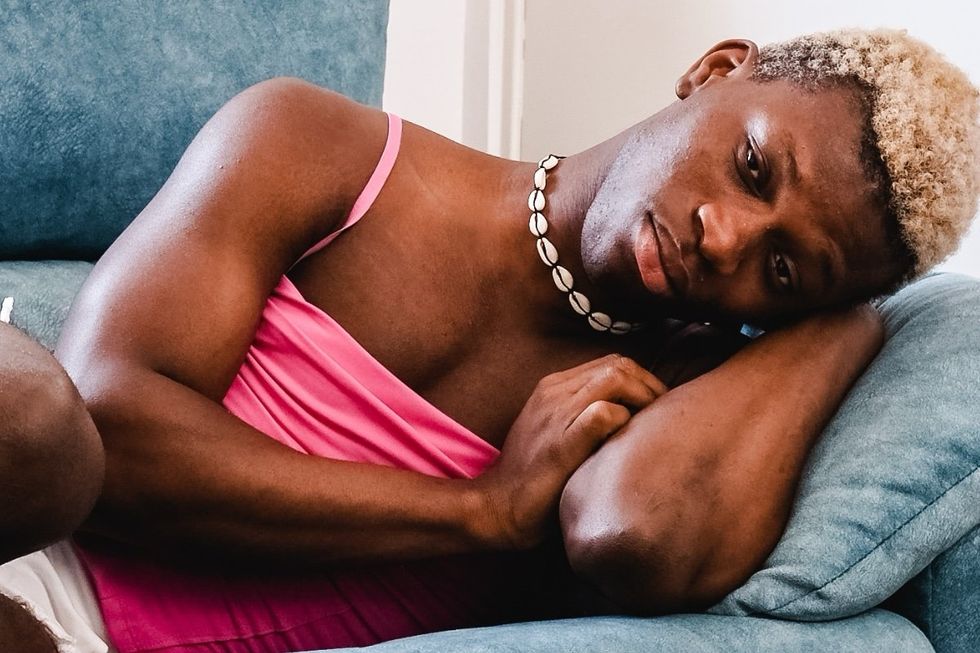
Daniel Megias/Shutterstock
No one is free until transgender women are free. Transgender people are murdered at a much higher rate than other members of the LGBTQ+ community. When we shame trans people, use transgender as an insult, or question the validity and existence of transgender identities, we devalue them and create a community where they are disposable.
11. Homophobic or Transphobic Slurs
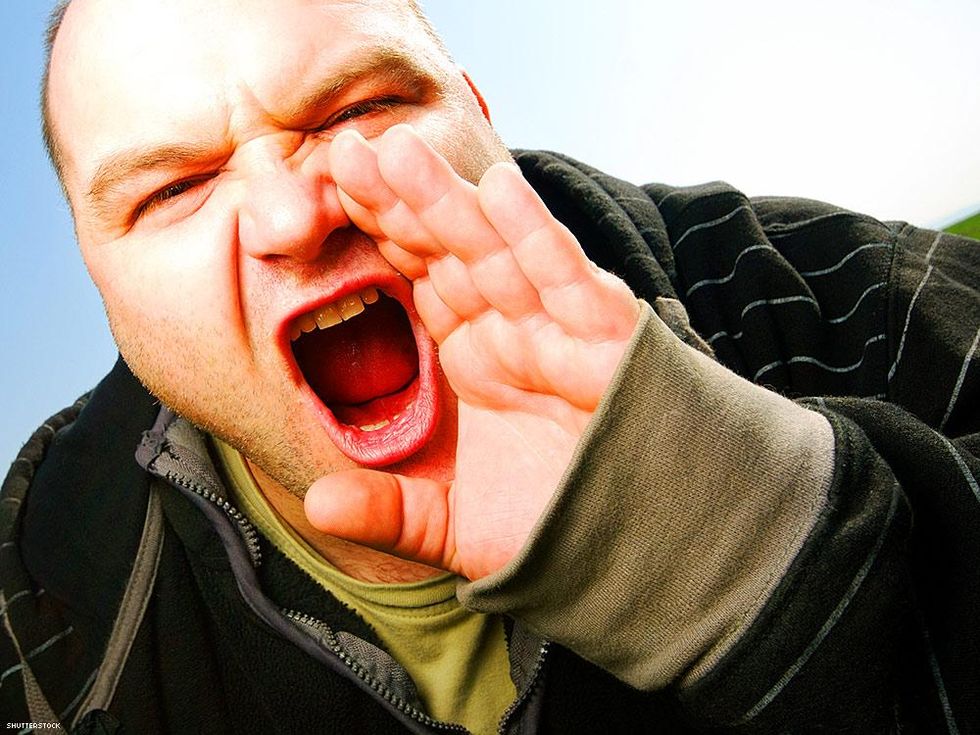
Do not disparage or shame others with homophobic or transphobic slurs. There are plenty of LGBTQ+ people who have taken back ownership of words that were historically used as slurs, and who use them to refer to themselves or amongst friends. However, we should never resort to slurs as a way of tearing others down.
12. Racism

The preference vs. discrimination debate comes up a lot when we talk about dating in the LGBTQ+ community. In truth, "preferring" not to date Asian, Latinx, or Black people is a form of racism. Having a “preference” based on race mean that you are cognitively choosing to not engage with people because of their race. That can be a form of shaming, and is discrimination, plain and simple. Whether that is something comfortable living with or are working through is up to you.
13. Addiction shaming

Our community deals with a high rate of addiction. Addiction is a real struggle for a lot of people, and shaming others for their battles with addiction is harmful, cruel, and incredibly unhelpful. If someone you know is dealing with addiction, work on ways you can support them. There is undoubtedly more we all could be doing to improve awareness about addiction and access to addiction treatment.
14. Identity Shaming
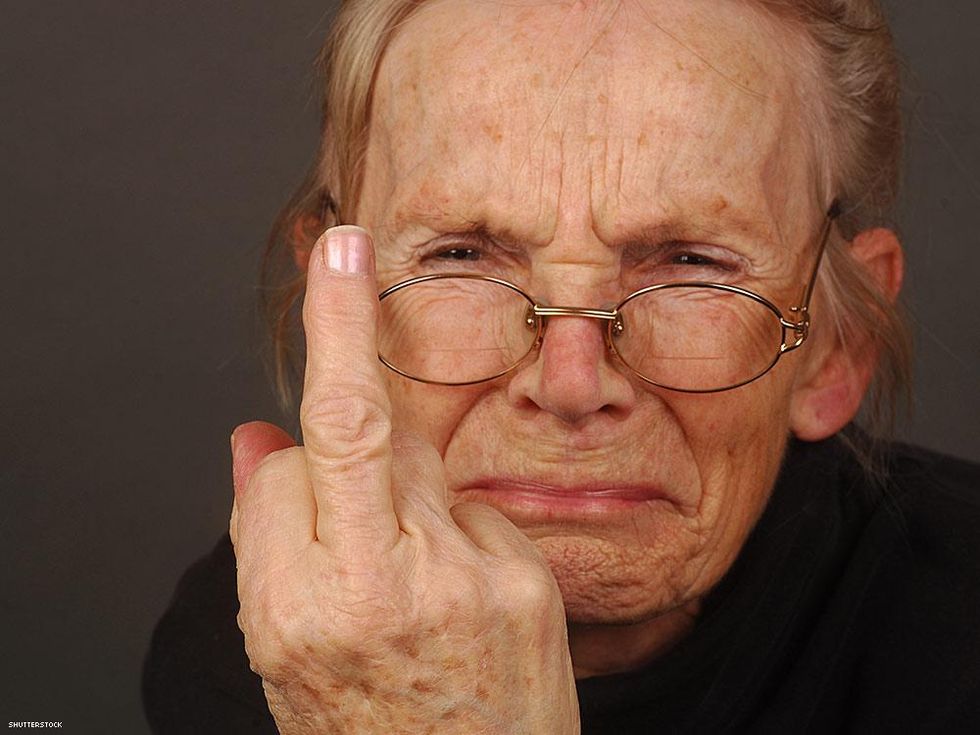
Bisexual people are not just looking for the best of both worlds. Gay people are not trying to convert you. Queer people are not confused, or coming out because it's trendy. You can't turn a lesbian straight. There is truly no need to shame a person for the identity by repeating any of these misconceptions.
15. Age Shaming

Ageism is something we younger members of the LGBTQ+ community really need to work on. Remember that our elders lived through the worst of the HIV epidemic, fought for our rights and liberties, and forged the way for us to have many of the opportunities we enjoy now. Make room for LGBTQ+ seniors, and instead of shaming a person for their age when you disagree with their point of view, do your best to understand where they are coming from, agree to disagree, or challenge them politely and with respect.

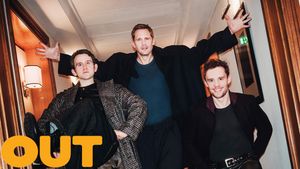





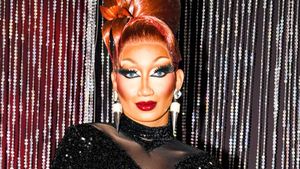




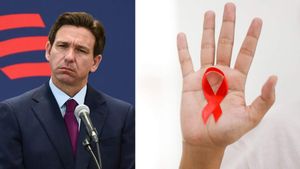
































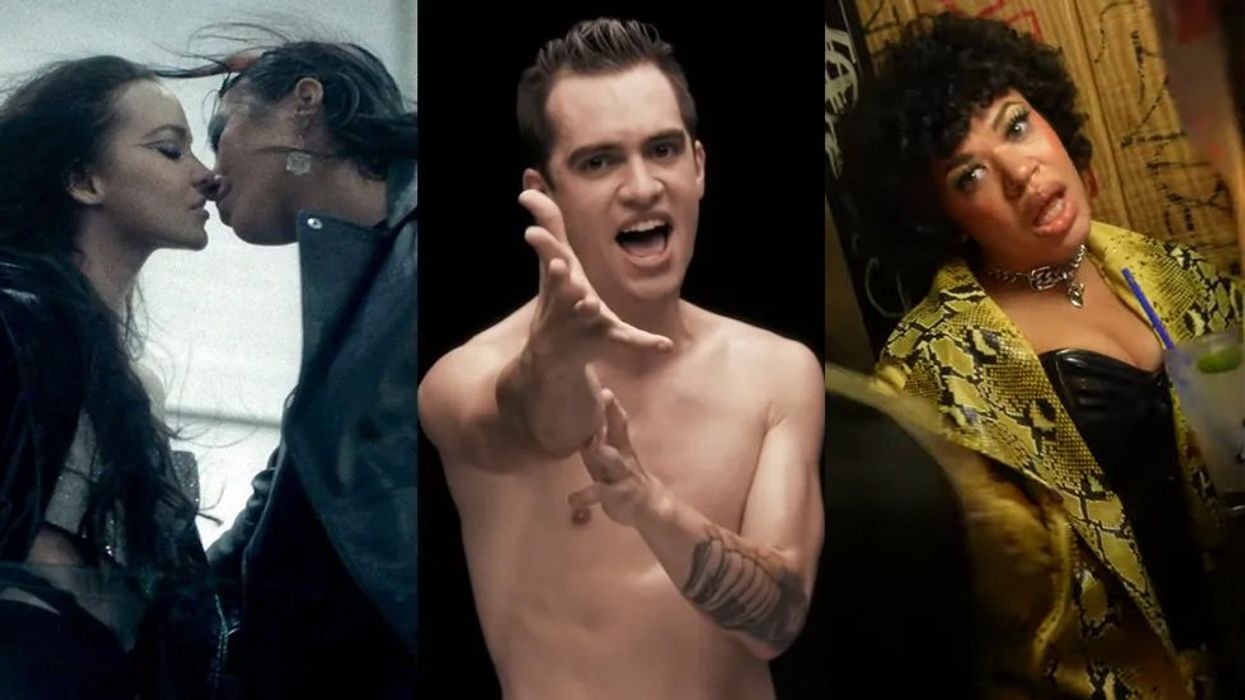
 35 bisexual pop anthems we have on constant repeatYouTube.com/Binoy
35 bisexual pop anthems we have on constant repeatYouTube.com/Binoy








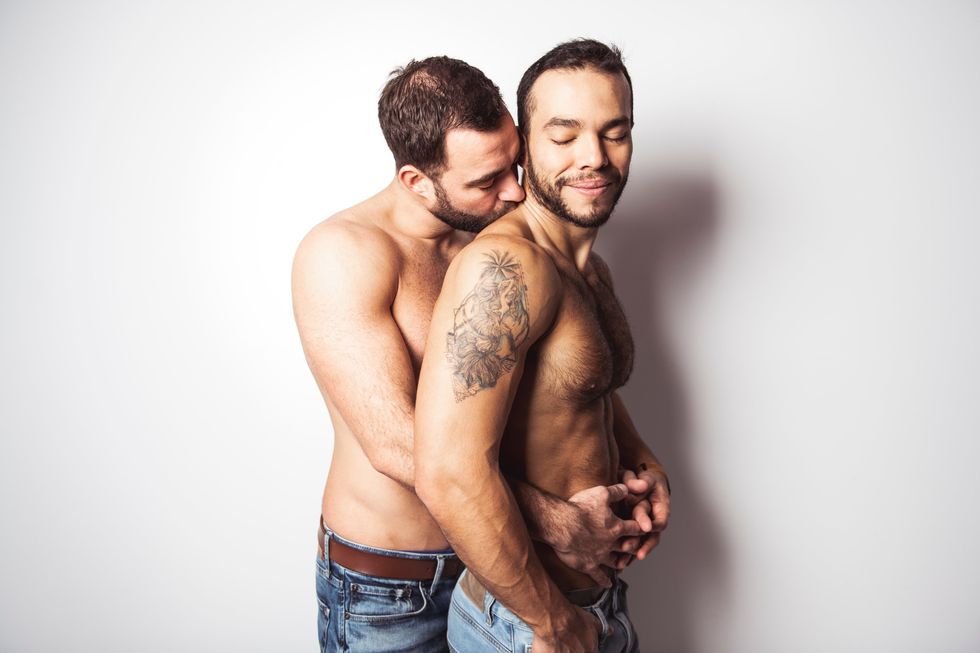
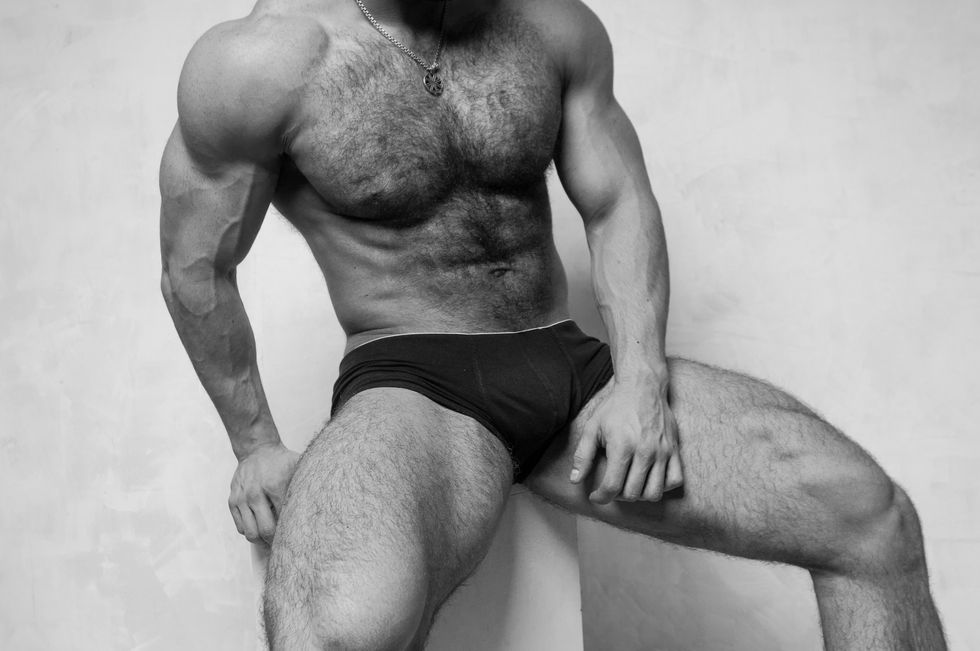
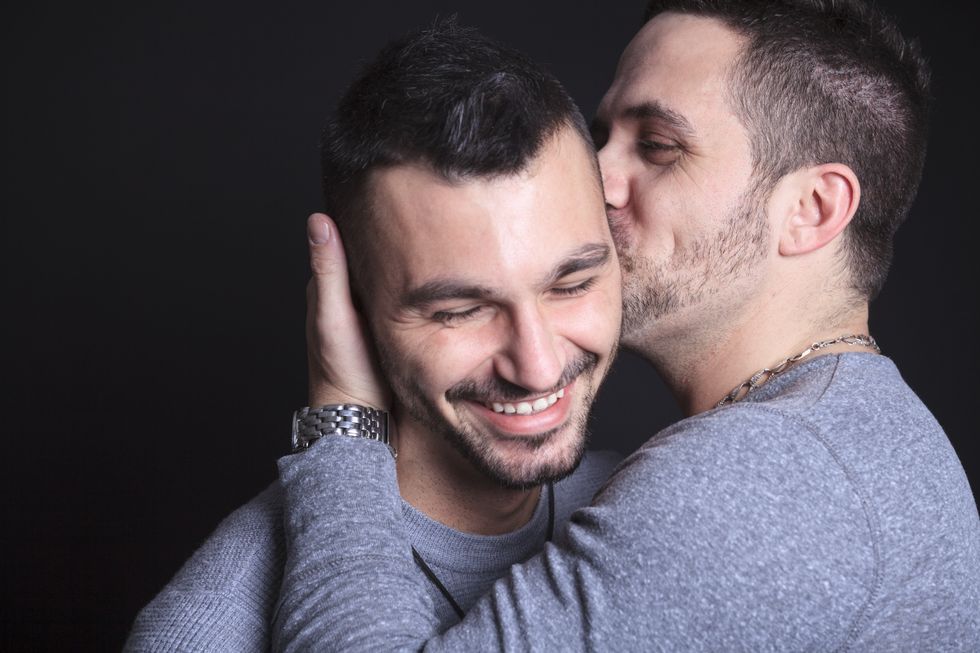






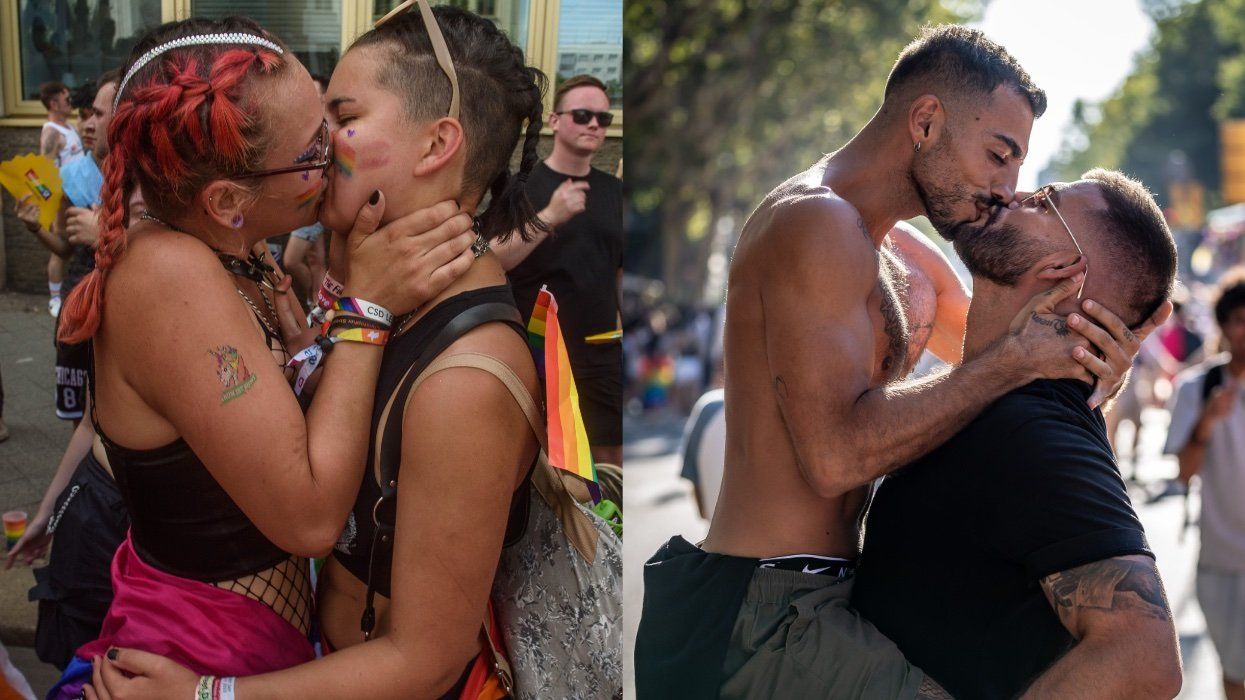
 A couple kisses in the middle of the street during the Christopher Street Day ; Men seen kissing during the 2023 Pride Barcelona Parade.Yerchak Yauhen/SOPA Images/LightRocket via Getty Images; imone Boccaccio/SOPA Images/LightRocket via Getty Images
A couple kisses in the middle of the street during the Christopher Street Day ; Men seen kissing during the 2023 Pride Barcelona Parade.Yerchak Yauhen/SOPA Images/LightRocket via Getty Images; imone Boccaccio/SOPA Images/LightRocket via Getty Images
